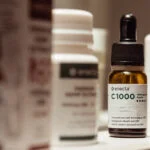What is Alcohol Detox?
Detox is defined as the body ridding itself of toxins and waste. After admitting to yourself that you have developed alcohol use disorder (AUD), alcohol detox is usually the first step that needs to be taken towards overcoming an addiction to alcohol.
As consuming alcohol causes some chemical changes within your body, sudden withdrawal from alcohol after long-term and excessive use also triggers some changes in your body. These are called withdrawal symptoms.
Withdrawal symptoms vary from person to person and are largely dependent on the severity of the addiction.
For someone with a long-standing and severe addiction, withdrawal symptoms can be very dangerous and potentially life-threatening, which is why most detox programmes require some medical intervention along the way.
The process of alcohol detox
Alcohol detoxification can take place within a residential facility with 24-hour care, or at home with regular visits to a key worker or another healthcare provider. The level of treatment you need will largely depend on the addiction level.
However, most detox programmes run through three basic steps:
1. Intake
Your healthcare provider will gather information on your medical history, the severity of your addiction and any other information necessary. This will be very comprehensive and will enable you to have a personalised treatment plan tailored to your specific needs.
2. Medication
You will be prescribed medication to counteract the withdrawal symptoms. You may also be prescribed other medications that your healthcare provider has deemed necessary, such as anti-depressants or beta-blockers.
3. Stabilisation
You will undergo a range of therapies and classes to help you in your journey to overcoming your addiction. This might involve Cognitive Behavioural Therapy (CBT), group therapy sessions or one to one therapy sessions.
How long does alcohol detox take?
Typically, most people can complete detox within two weeks. For anyone with a severe and long term addiction, it may take a little longer and require more treatment before they have stabilized.
Someone who recognised the symptoms early on and got treatment quite quickly might only need to detox for 5 – 7 days. However, some people will take longer than this.
It is important to know that there is no right answer, and your healthcare provider will be able to give you an idea of how long you will need to detox once they have an idea of the severity of your addiction.
What withdrawal symptoms can I expect?
Not everyone will experience the same withdrawal symptoms, and the severity of the withdrawal symptoms largely depends on each individual and their level of dependency.
However, some commonly reported withdrawal symptoms during alcohol detox are:
- Cold sweats
- Excessive sweating
- Raised body temperature
- Hypertension
- Muscle tremors
- Shakes
- Nausea
- Vomiting
- Diarrhoea
- Anxiety or depression
- Intense mood swings
- Trouble sleeping
- Nightmares
- Hallucinations
- Panic attacks
- Seizures
- Delirium tremens (DTs)
Delirium tremens and seizures are particularly dangerous withdrawal symptoms and usually happen when the addiction is rather severe. They can lead to heart attacks and even death.
This is the reason that people with particularly severe addictions are better detoxing in a residential facility as they will have immediate access to medical professionals and constant surveillance during the worst days of the detox.
What happens after alcohol detox?
Once you have completed your alcohol detox, you are still only beginning your journey towards recovery. Detox is the first step to overcoming your addiction, but you will have a lifetime of abstaining ahead of you that you will need to be prepared for.
Once your detox is complete, you will continue to partake in the therapy that your healthcare provider recommended. This could be a 12 step programme or other group therapies, or one to one counselling sessions.
You will also be encouraged to develop healthier habits. If you underwent detoxification in a residential facility, you will have passed your time doing yoga or attending art classes or dance classes. These are encouraged to try to get patients to focus on healthier interests.
Your key worker will continue to stay in touch with you throughout your treatment even after detoxification is finished to make sure you are passing your spare time in a healthier way.





